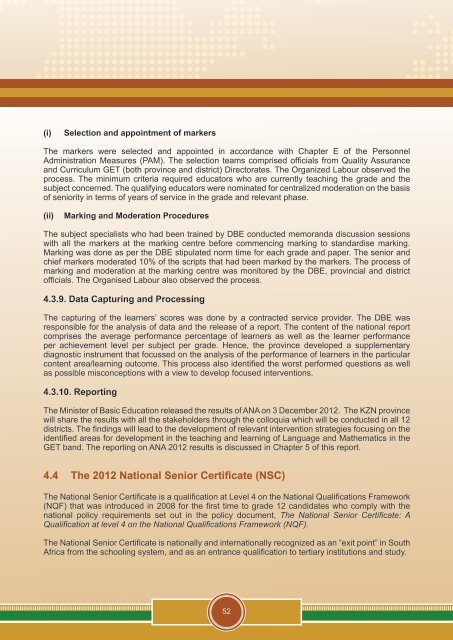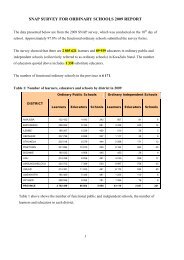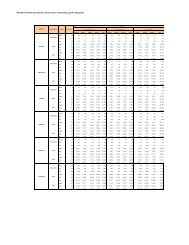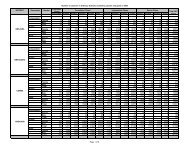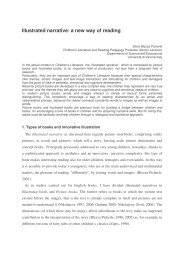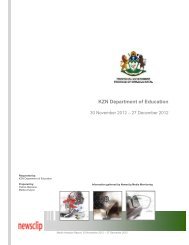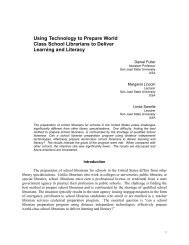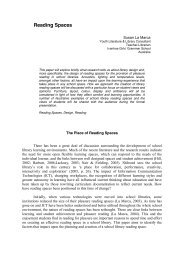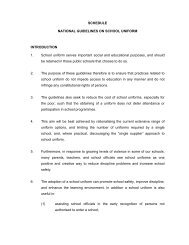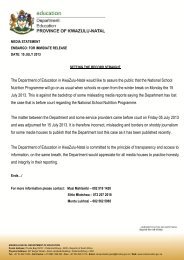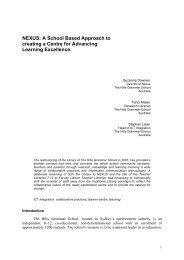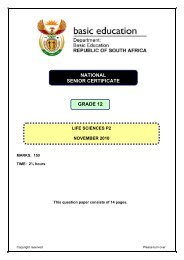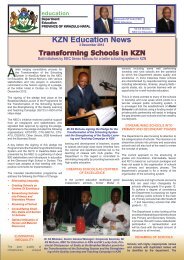School's Report 2012 National Senior Certificate (NSC) Examination
School's Report 2012 National Senior Certificate (NSC) Examination
School's Report 2012 National Senior Certificate (NSC) Examination
You also want an ePaper? Increase the reach of your titles
YUMPU automatically turns print PDFs into web optimized ePapers that Google loves.
(i)<br />
Selection and appointment of markers<br />
The markers were selected and appointed in accordance with Chapter E of the Personnel<br />
Administration Measures (PAM). The selection teams comprised officials from Quality Assurance<br />
and Curriculum GET (both province and district) Directorates. The Organized Labour observed the<br />
process. The minimum criteria required educators who are currently teaching the grade and the<br />
subject concerned. The qualifying educators were nominated for centralized moderation on the basis<br />
of seniority in terms of years of service in the grade and relevant phase.<br />
(ii)<br />
Marking and Moderation Procedures<br />
The subject specialists who had been trained by DBE conducted memoranda discussion sessions<br />
with all the markers at the marking centre before commencing marking to standardise marking.<br />
Marking was done as per the DBE stipulated norm time for each grade and paper. The senior and<br />
chief markers moderated 10% of the scripts that had been marked by the markers. The process of<br />
marking and moderation at the marking centre was monitored by the DBE, provincial and district<br />
officials. The Organised Labour also observed the process.<br />
4.3.9. Data Capturing and Processing<br />
The capturing of the learners’ scores was done by a contracted service provider. The DBE was<br />
responsible for the analysis of data and the release of a report. The content of the national report<br />
comprises the average performance percentage of learners as well as the learner performance<br />
per achievement level per subject per grade. Hence, the province developed a supplementary<br />
diagnostic instrument that focussed on the analysis of the performance of learners in the particular<br />
content area/learning outcome. This process also identified the worst performed questions as well<br />
as possible misconceptions with a view to develop focused interventions.<br />
4.3.10. <strong>Report</strong>ing<br />
The Minister of Basic Education released the results of ANA on 3 December <strong>2012</strong>. The KZN province<br />
will share the results with all the stakeholders through the colloquia which will be conducted in all 12<br />
districts. The findings will lead to the development of relevant intervention strategies focusing on the<br />
identified areas for development in the teaching and learning of Language and Mathematics in the<br />
GET band. The reporting on ANA <strong>2012</strong> results is discussed in Chapter 5 of this report.<br />
4.4 The <strong>2012</strong> <strong>National</strong> <strong>Senior</strong> <strong>Certificate</strong> (<strong>NSC</strong>)<br />
The <strong>National</strong> <strong>Senior</strong> <strong>Certificate</strong> is a qualification at Level 4 on the <strong>National</strong> Qualifications Framework<br />
(NQF) that was introduced in 2008 for the first time to grade 12 candidates who comply with the<br />
national policy requirements set out in the policy document, The <strong>National</strong> <strong>Senior</strong> <strong>Certificate</strong>: A<br />
Qualification at level 4 on the <strong>National</strong> Qualifications Framework (NQF).<br />
The <strong>National</strong> <strong>Senior</strong> <strong>Certificate</strong> is nationally and internationally recognized as an “exit point” in South<br />
Africa from the schooling system, and as an entrance qualification to tertiary institutions and study.<br />
52


